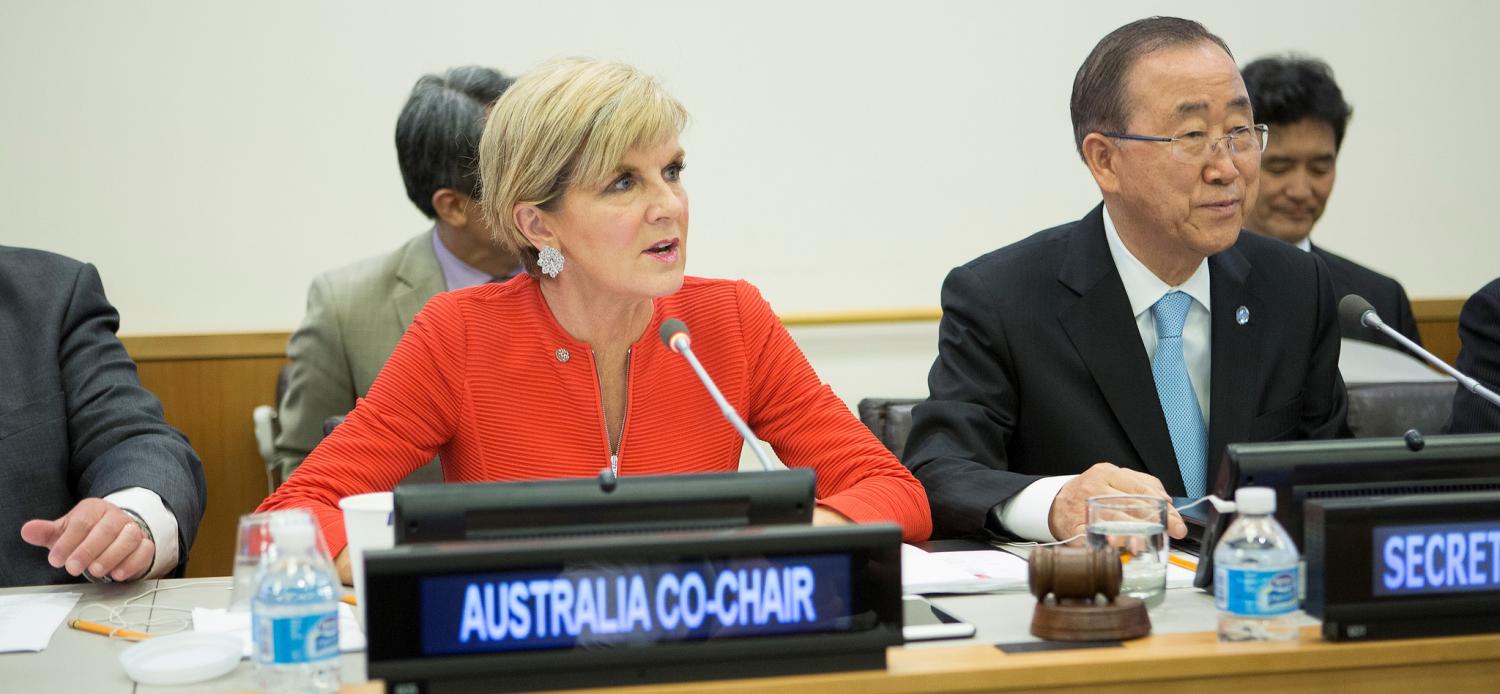This post is part of a debate on Australia’s foreign policy White paper 2017. Click here for other debate posts.
Back in October I wrote a piece about the Foreign Policy White Paper ('White Paper blues') which asked what might be behind Foreign Minister Julie Bishop's statement that the purpose of the White Paper was to establish a 'philosophical framework to guide Australia's engagement, regardless of international events' (my emphasis).
At the time, I was rather taken by that phrase, arguing that it was an oblique acknowledgment that White Papers rarely date well, and that Bishop's team would make a real attempt to craft a document that was intended to last well beyond the headlines it created on the day of the launch. In other words, Bishop wanted a White Paper which would do more than just describe Australia's circumstances but would be a guide to policy over the coming ten years, even if we could not predict exactly what challenges Australia would be faced with in that period.
Since then, it has occurred to me that there is another plausible reading of Bishop's phrase, which is that the promise to produce a White Paper which could guide foreign policy 'regardless of events' might actually be code for avoiding certain events, or one big event in particular: the rise of China.
Finding a way to manage the tension between the interests of our major strategic partner - the US - and our primary economic partner - China - surely has to be at the very heart of Australian foreign policy over the coming decade, yet our political leaders seem far from ready to even acknowlege the tension. In fact, as that tension has become more acute over the last 10-20 years, Australian prime ministers have either insisted that the Howard-era formula that Australia 'does not have to choose' between the US and China still applies, or (in the case of Malcolm Turnbull) have ignored the tension even though they acknowledged it before taking office.
If the White Paper ignores this dilemma, it cannot meet Julie Bishop's ambition for it to be a document that guides foreign policy for the coming decade. Yet some will point out that while a White Paper is a strategy document it is also a diplomatic document intended for consumption by foreign governments. In the hours after its publication, diplomats from around Canberra will be parsing it to see how their country was treated, and what this says about their relationship with Australia. Depending on what the White Paper says, relationships with some countries might even dip, as allegedly happened after China reacted badly to the 2013 Defence White Paper.
That's a justifiable concern which will inevitably limit how direct the White Paper can be, yet against that we must weigh the gravity of Australia's situation. Throughout our history as a sovereign nation, Australia has been lucky enough to have a strategic partner that was also our major economic partner. First it was the UK, then after the fall of Singapore it became the US. In the '70s our major economic partner became Japan, also a reliable ally of the US. So our economic and strategic interests never clashed directly, as they are beginning to do now.
It's a tension that may very well require Australia to make some extremely difficult decisions, and may raise issues which won't be confined to wonkish websites like this one. As we saw with the Dastyari episode last year, the consequences of China's rise to power can quickly become prominent in the national conversation. And the issue won't always be as trivial as an MP taking travel payments from Chinese concerns. What if the government needs to make moves which could harm us economically, or which could damage our standing with our ally, or which could lead the commitment of military forces in North Asia? The public needs to be prepared for such potentially dramatic shifts, and the White Paper would be an excellent platform from which to make such preparations.
By the time she launched the public consultation phase of the White Paper in December last year, Julie Bishop had sharpened her sentiments about the ambitions of the White Paper:
This is not about predicting the future – nobody can do that – it's about looking at the kind of framework that needs to be in place so that we're not reacting to events, we're strategically positioned to manage, maybe even shape, events.
That's a much more robust formulation: the aim should be to produce a paper which can cope with changing events, rather than one which is works 'regardless' of events. The latter sounds like a document containing principles so broad and general as to be little guide to policymakers, while the former could actually achieve the rare aim of being something that is consulted by busy policymakers for years after publication.
